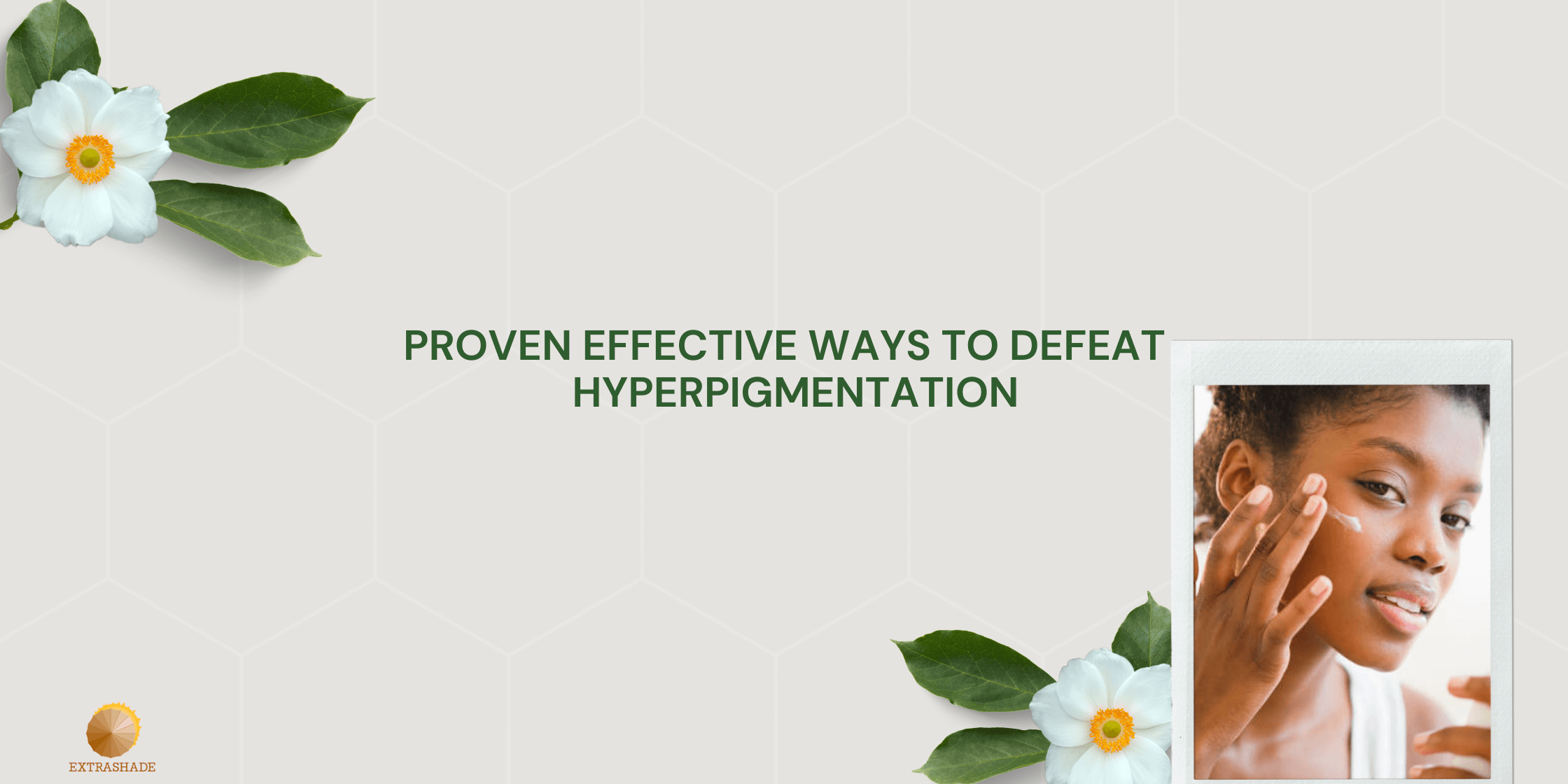Hyperpigmentation can be a frustrating concern, but achieving a more even skin tone is absolutely possible.
Here, we’ll explore some of the most effective methods, backed by science, to help you fight hyperpigmentation and reveal your radiant complexion.
What Is Hyperpigmentation?
Hyperpigmentation is a general term for a skin condition that causes patches of skin to become darker than the surrounding area. This darkening occurs when the skin produces too much melanin, the pigment that gives skin, hair, and eyes their color.
Importance of treating hyperpigmentation
Treating hyperpigmentation is important for several reasons:
i. Aesthetic Concerns
Hyperpigmentation, such as dark spots, melasma, and age spots, can affect a person’s appearance and self-esteem. Treating these conditions can lead to more even skin tone and improved self-confidence.
II. Skin Health
Hyperpigmentation can sometimes indicate underlying skin damage, such as from sun exposure. Addressing hyperpigmentation can help in recognizing and treating other potential skin issues early on.
III. Preventing Progression
If left untreated, hyperpigmentation can become more pronounced and harder to treat over time. Early intervention can prevent further darkening and make treatment more effective.
IV. Psychological Well-being
Skin conditions, including hyperpigmentation, can have psychological effects, leading to stress, anxiety, and social withdrawal. Effective treatment can improve mental health and overall well-being.
V. Professional Appearance
For some people, particularly those in industries where appearance is emphasized, treating hyperpigmentation can be important for maintaining a professional image.
Effective Ways to Defeat Hyperpigmentation
Hyperpigmentation, the darkening of an area of skin due to increased melanin, can be challenging to treat. However, several effective strategies can help reduce and manage it.
1. Topical Treatments
Hydroquinone is a widely used skin-lightening agent that inhibits melanin production. Retinoids, such as tretinoin and retinol, promote cell turnover and help to fade dark spots over time. Vitamin C, an antioxidant, brightens the skin and inhibits melanin production.
Azelaic acid reduces melanin production and has anti-inflammatory properties. Kojic acid, derived from fungi, helps lighten skin by inhibiting tyrosinase, an enzyme involved in melanin production. Niacinamide, a form of vitamin B3, can help lighten dark spots and improve skin texture.
2. Chemical Peels
Chemical peels using acids like glycolic, lactic, or salicylic acid can exfoliate the skin, promoting cell turnover and reducing hyperpigmentation. These treatments remove the top layer of skin, encouraging the growth of new, evenly pigmented skin.
3. Laser Treatments
Laser therapy can target dark spots and hyperpigmented areas with precision. Treatments like Q-switched lasers or fractional laser resurfacing can break down excess melanin and promote an even skin tone. Multiple sessions are often required for optimal results.
4. Microdermabrasion and Dermabrasion
These procedures involve exfoliating the skin to remove the outer layer and promote the growth of new skin cells. Microdermabrasion is less aggressive and suitable for mild hyperpigmentation, while dermabrasion is more intensive and can address deeper pigmentation issues.
5. Sun Protection
Consistent use of sunscreen with broad-spectrum protection (SPF 30 or higher) is crucial. UV exposure can worsen hyperpigmentation and negate the effects of treatments. Wearing protective clothing and avoiding peak sun hours also helps in managing hyperpigmentation.
6. Natural Remedies
Some natural ingredients may help lighten hyperpigmented areas. Aloe vera contains aloin, which has skin-lightening properties. Licorice extract contains glabridin, which inhibits melanin production. Green tea extract has anti-inflammatory and antioxidant properties that can help reduce pigmentation.
7. Professional Guidance
Consulting a dermatologist is essential for personalized treatment. A professional can assess the type and severity of hyperpigmentation and recommend the most effective treatments, ensuring safe and effective results.
Conclusion
Hyperpigmentation doesn’t have to define your skin. By incorporating these proven methods into your routine and consulting a dermatologist for personalized advice, you can effectively manage and reduce hyperpigmentation.
Remember, consistency is key! With patience and the right approach, you’ll be well on your way to achieving a brighter, more even-toned complexion you can confidently flaunt.

